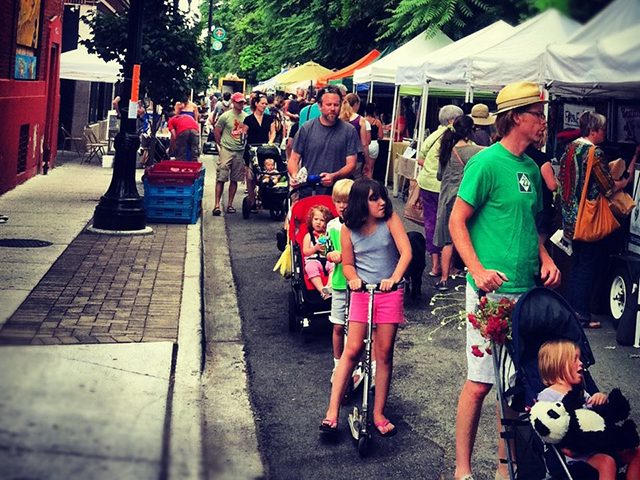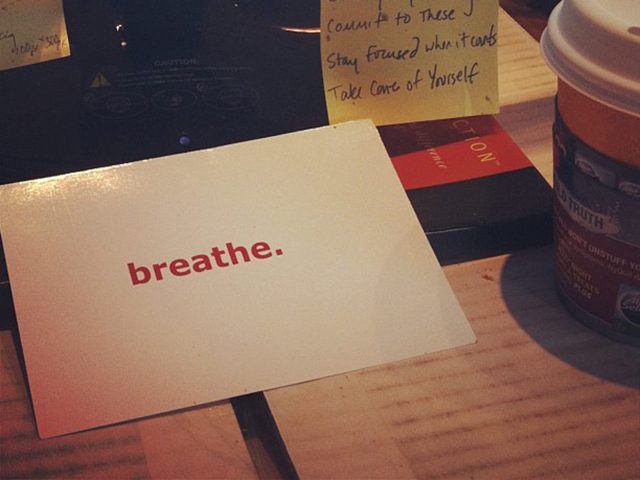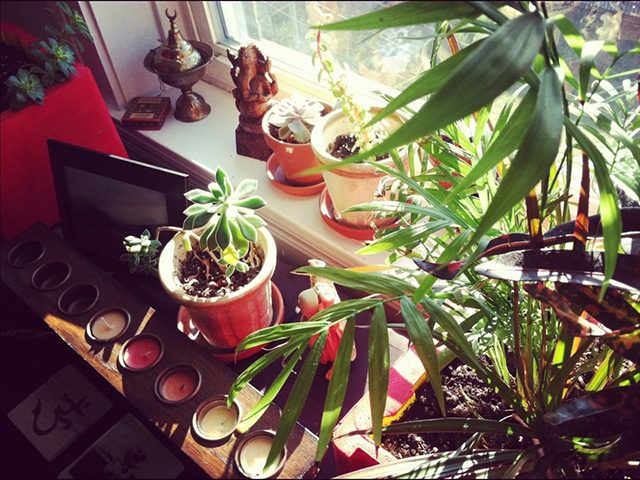Identifying as both an introvert and a traveler can sometimes be a challenge. There are no exciting GoPro® clips highlighting a glorious afternoon spent people-watching from a cafe in Italy, and I have yet to see a video go viral of an introspective woman joyfully eating room service, alone, on a Friday night in a foreign city.
Being introverts doesn’t mean we don’t seek out authentic cultural experiences or avoid making friends with other Wanderful women while traveling. What it does mean is that we need to have time alone after these moments to reflect and recharge.
While it is important to stretch our comfort zones (After all, that’s why we explore.), it is equally necessary to understand how to stay sane and feel safe while we embark on these adventures.
Knowing Your Introvert Traveler Comfort Zone

An important step for any introvert preparing for a trip is to not only know to how you like to travel and experience a new place, but to also understand your ideal state of physical, mental, and emotional balance. Knowing how it feels when you are balanced and centered as a whole will help you be aware of the warning signs saying you’re getting stretched too thin.
To make this somewhat abstract measurement a bit more tangible requires some reflection. (Yippee, our favorite thing to do!)
To begin, think of a place or situation that made you feel confident and at ease, excited or giddy.
Without any judgments, start to ask yourself these questions and notice your response:
- How does it feel in my body to be in this ideal setting? — What’s my heart rate, how is my breathing? Am I hot, cold, or neutral?
- How do I feel mentally in this moment? — Is my brain active or quiet? What type of thoughts are appearing?
- What type of emotional experience am I having? — Am I feeling excited, happy, peaceful? Where do these emotions show up in my body?
As you meditate on or journal or talk with a close friend about these observations, keep in mind that there is no right or wrong, just a chance to reflect on your personal experience.
After a few minutes of reflecting, take a moment of silence, and then begin again, but this time consider a time when you felt uneasy or unsafe in a specific place.
Repeat the questions above, and notice if there are any changes. From here, you can start to visualize your spectrum of emotions and where a balanced state of being is for you personally.
Having a tangible sense of the boundaries of your comfort zone can help you learn and have new experiences without feeling totally depleted during your travels. It’s one thing to push the edge of your comfort zone; it’s another to long-jump over your limit and plunge into a potential panic attack.
The Trouble with Crowds

As introverts, there are few places that deplete our energy more than being overwhelmed in a crowd of people. Unfortunately, it’s inevitable that being able to get from Point A to Point B is going to require some sort of crowded plane, train, or bus, and that some of the most authentic cultural experiences happen in local markets or holiday celebrations.
Crowded areas eliminate our personal space and can often make us feel anxious. When we lose our ability to have personal boundaries or space to move in crowded areas, it can lead to a lack of security, which is the easiest way to stop enjoying your travel experience.
I love exploring markets but am highly sensitive to how close people are walking behind me. Even if I don’t feel threatened by a person, I become agitated when I feel I’m losing my ability to maneuver in a crowd at my natural walking pace.
Don’t despair! This is not an all-or-nothing choice between traveling or staying sane (and safe).
As an introvert, the battery starts depleting the moment we start having interactions, and it is up to us to be responsible for how fast or slow that energy level recedes. Speaking from personal experience, it is not fun to navigate a new place with a blurred vision of angry tears, so it’s good to know your personal warning signs and how to recover if retreating to your bed is not an option.
Know the Symptoms of Stress to Stay Sane and Safe
Remember how it felt when you thought of a place that made you uneasy in the exercise above? You might be feeling the same way now, trying to buy that sweet necklace you found in the market.
Keep in mind these common red flags when pushing yourself out of your comfort zone:
- Shortness of breath or difficulty breathing
- Feeling agitated or a heightened sense of annoyance or even anger
- Increased heart rate
- A feeling of claustrophobia
- Feeling emotionally triggered more than usual
Paying attention to personal triggers and symptoms of stress is a way to engage in self-care on the go. When we can take a few minutes to recover, we can sustain for much longer our curiosity during a travel day and recharge much faster on our travels.

Ways to Recharge While Traveling
Here are a few ideas to help you regain your energy while on the go:
- Take five minutes in a bathroom to breath and get your bearings.
- Meditate on easily moving into the open spaces within a crowd or busy market.
- Be strategic about where you stand or sit while in a large group to give you additional personal space or an ability to easily come and go from the group when necessary.
- Carry a book or notebook that allows you to focus on a silent space while being immersed in a chaotic environment. Staring out a window is another way to accomplish this.
- Keep yourself well-rested, well-fed, and hydrated.
The Power of Your Second Brain
There are times when no amount of intentional breathing can hide the fact that your gut is telling you something important. The phrase “gut feeling” is around for a reason. Your intestines are packed with neurons that are connected to your brain in the brain-gut axis and sometimes referred to as the “second brain.”
When you get that sinking feeling in your stomach that something isn’t right or that you need to avoid a certain place or group, this is not just a cliché phrase. Your body is picking up on external signals far quicker than your brain is processing thought.
As introverts who spend a lot of time going “internal,” we can be sensitive to this feeling of unease. Being aware of our ability to notice when we might be in danger is a very valuable tool in our travels and one that we can instinctively draw upon.
Recouping After a Travel Adventure

Just because the wheels have touched down on the tarmac doesn’t mean that your introvert-self is off the hook when it comes to self-care. Allotting time to reflect on your experience is extremely important for adjusting back to the daily routine, no matter whether you’re an introverted or an extroverted traveler.
Journaling is a great way to process your travel experiences and safety needs. Consistently writing post-travel is also a nice way to see any patterns or recurring needs to consider for future trips.
If writing isn’t your go-to, meeting up with a close friend or with fellow travelers gives you a chance to share and verbally articulate your experience.
We are familiar with taking vacation days for exploring and travel, but for some of us, it might be important to save one of those vacation days from work to recover at home and recharge by just being alone with ourselves.
As an introvert who has caught the travel bug, remember that as much effort as you put into booking the best-priced flight and finding the ideal accommodation, you should put an equal amount of time into reflecting on what you need to feel balanced while having awesome travel experiences.
This could be the perfect way to spend your coveted alone time between your adventures!














































